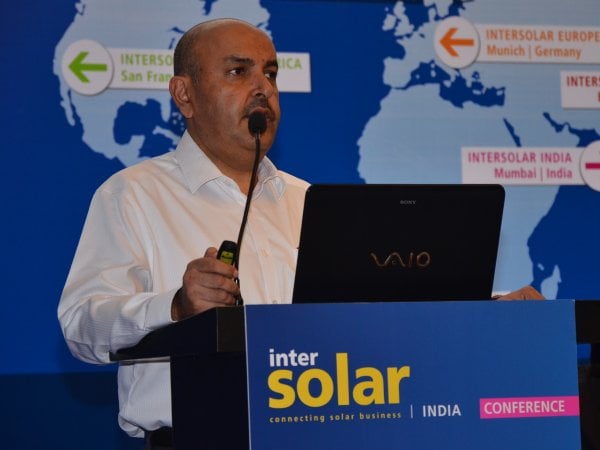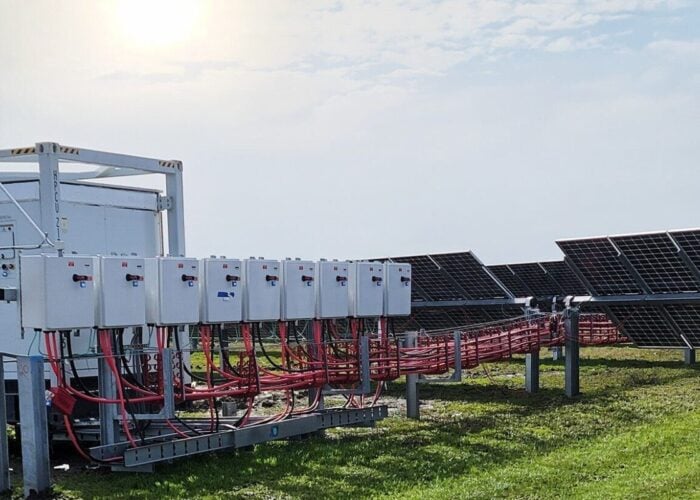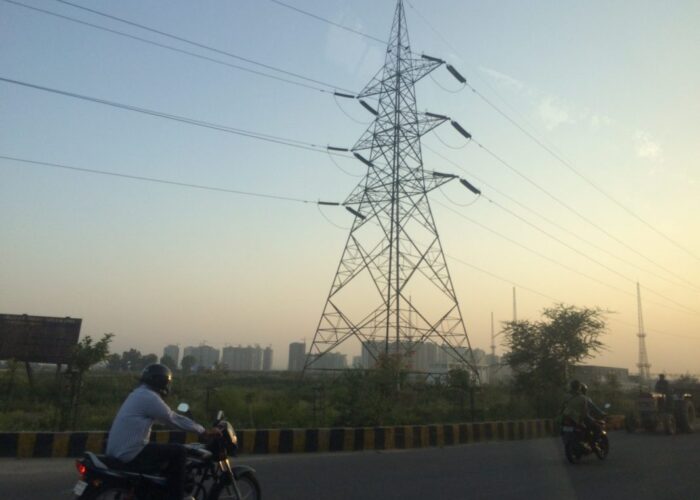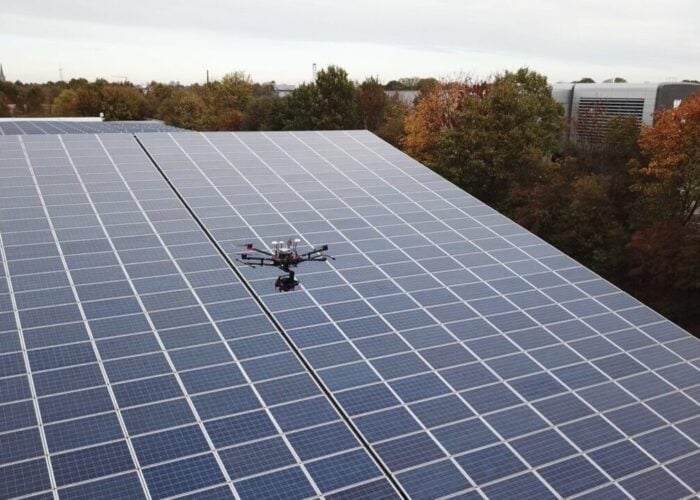
The World Trade Organisation (WTO) ruling in favour of the US on its complaint against India’s localisation rules for solar equipment, does “not affect the future course of action” that India is considering, Tarun Kapoor, joint secretary of India’s Ministry of New and Renewable Energy (MNRE) has told PV Tech.
Yesterday the WTO Panel ruled that India’s domestic content requirement (DCR) discriminates against US solar cells and modules by requiring solar power developers to use Indian-manufactured cells and modules rather than other imported solar technology in some PV projects under India's National Solar Mission (NSM). The Panel said this was in breach of international trade rules.
Try Premium for just $1
- Full premium access for the first month at only $1
- Converts to an annual rate after 30 days unless cancelled
- Cancel anytime during the trial period
Premium Benefits
- Expert industry analysis and interviews
- Digital access to PV Tech Power journal
- Exclusive event discounts
Or get the full Premium subscription right away
Or continue reading this article for free
However, Tarun Kapoor said that India and the US were in “general agreement” on most of the issues related to the DCR in attempts to find an “amicable solution”. In any case, the US still decided to have the report on the ruling circulated.
Under WTO rules, the report will be adopted if either party requests it within 60 days of its circulation, or either party may appeal the report before it is adopted.
The US Trade Representative said the US will continue to work with India, as it has for the last several months, to explore opportunities to “negotiate a resolution of this dispute”, consistent with WTO rules.
Meanwhile, Kapoor said: “It does not affect the future course of action which India is considering as India is committed to protecting its industry while following WTO regulations. This will not, therefore, cause any dent in [the] ‘Make in India’ programme because we still have several options to support the domestic industry while remaining within the WTO regulations.”
The ‘Make in India’ programme is an initiative from Indian prime minister Narendra Modi, which seeks to support domestic manufacturing of all kinds.
Kapoor also cited the fact that India has the option of appealing against the ruling.
Jasmeet Khurana, associate director of consultancy firm Bridge to India, told PV Tech that it is not clear what the exact point of contention between the US and India was, however, the ruling may leave India's capital subsidy scheme for rooftop solar more vulnerable to a similar challenge.
He added: “Indian cell manufacturers will suffer the biggest blow. If DCR on modules is revoked for the rooftop solar capital subsidy scheme, then almost all existing manufacturers will bear its brunt. This may also have some impact on the plans for new manufacturing capacity in the country.”
Referring to concerns about how the ruling might affect the ‘Make in India’ programme, Khurana repeated Bridge to India’s long-held opinion that the DCR is not a sustainable means for promoting domestic manufacturing and there are other more effective actions that government can take.
The consultancy has previously reported how India's DCR tenders have received muted interest as compared with open category solar tenders, which have seen fierce competition and record low tariffs since last summer.
Khurana added: “It is the larger reforms around the ‘Make in India’ campaign that will make or break India’s story for domestic solar manufacturing and not the other way round.”
Early in 2014, US thin-film manufacturer, First Solar, which had previously dominated India’s thin film market, missed out on DCR projects under the second phase of the NSM after thin-film modules were included in DCR rules.
PV Tech contacted First Solar on the latest WTO ruling, but the firm declined to comment.
Solar market commentators have consistently downplayed the impacts of any ruling against the DCR as it was only earmarked to account for a small percentage of central government-allocated projects from the off.
India/US dispute background
The US first lodged its complaint in February 2013, and the WTO was forced to set up a dispute settlement panel in May 2014 after the US made a second request.
In the meantime, India dropped a separate investigation into alleged dumping of solar equipment by foreign players, including those from the US, in August 2014. That investigation had threatened to sour relations between India and a number of countries eyeing the opportunities for their domestic solar players in India.
In February 2015, the WTO dispute panel then prepared to hear the US complaint over India’s domestic solar panel manufacturing. Meanwhile prime minster Narendra Modi’s government officially approved the hugely ambitious ramping up of its national solar target to 100GW by 2022, up from just 22GW.
In August 2015, it became clear that the WTO would rule against the DCR requirments.
With an official ruling imminent earlier this month, India proposed a compromise with the US by removing its local content requirement from private sector solar projects and continuing them in the public sector only.
Just last week, US Trade Representative Michael Froman said both countries were still in discussions and it was too early to tell if there would be an agreement – even after India offered the compromise.
This week the WTO ruled in favour of the US.
The US Trade representative said this solar energy case was one of 20 enforcement actions taken by the Obama Administration at the WTO – more than any other WTO Member. The US has won in every single one of those disputes that has been decided by the WTO so far.






